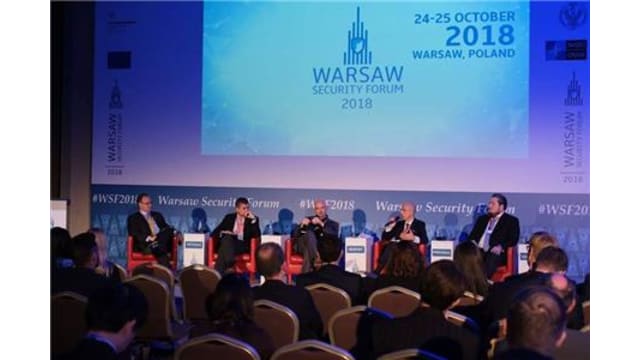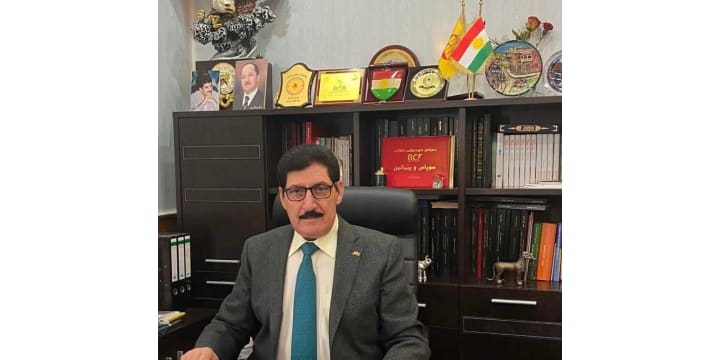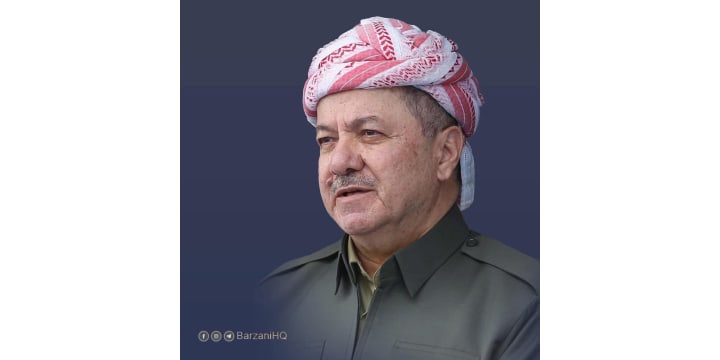
Framework for prevention and mitigation of modern day terrorism.
The disintegration of the last Islamic empire after the First World War and the division of the Middle East and North Africa (MENA) into spheres of British and French interests was a major shock to the core believers of Islam. The failed post-colonial attempts at state formation and the failure of those so called states to create just and inclusive societies led to disillusionment and apprehension among the inhabitants in particular among the young people. This reality led to the rise of violent nationalist and Marxist ideologies to challenge the status quo and re-arrange the post-colonial order. When these ideologies failed in achieving the stated objectives, political Islam was seen as a viable alternative. In other words, political Islam and its appeal to the disenchanted and impoverished were symptoms of underlying mass discomfort among politically neutered and voiceless citizens who have been mistreated by their own societies and governments. The success of the Iranian Islamic Revolution in 1979 contributed to the revival of Islamic fundamentalism and the Jihad in Afghanistan against the USSR provided the best context both in Afghanistan and Pakistan for the political Islamists to advance their cause and spread the Jihadist Salafism which constitutes the core religious political ideology of Al-Qaeda, ISIS and other Jihadist groups.
The war against these groups in particular Al-Qaeda and ISIS has been going on since September 11, 2001 by the United States and its coalition partners. Although these groups have, militarily, suffered heavy defeat in Iraq and Syria, but the fight against them both militarily and ideologically is far from over. There are still areas in Iraq and Syria where ISIS pose serious threat to the lives of local populations and their active presence has, at least, slowed down the limited efforts of reconstruction in the Sunni Governorates of Iraq and discouraged the Internal Displaced People IDPs from leaving the camps in Kurdistan Region and return to their homes. The institute for the study of War (ISW) in one of its recent reports states that the US anti ISIS campaign has not eliminated the global threat poses by ISIS, despite largely accomplishing its stated objectives in Iraq and Syria. ISW published extensive information on ISIS’s latest operation area in Iraq and Syria as of 1st October 2018 and states:
(The Islamic State of Iraq and Al Sham (ISIS) is reconstituting a capable insurgent force in Iraq and Syria despite efforts to prevent its recovery by the US anti ISIS Coalition. The US Department of Defence stated in August 2018 that ISIS retains nearly 30,000 fighters across Iraq and Syria and is “more capable” than Al-Qaeda in Iraq – ISIS’s predecessor- at its peak in 2006 – 2007. ISIS is waging an effective campaign to re – establish durable support zones while raising funds and rebuilding command and control over its remnant forces). The post Kurdish Referendum ramifications in Iraq and the re-occupation of the disputed areas by the Iraq Mobilisation forces which led to the withdrawal of Peshmerga from these areas have undermined the security arrangements which were in place when the Peshmerga were defending these areas. The current Federal Security forces deployed in these areas are not capable in preventing the ISIS terrorists from carrying out terrorist attacks and terrorising the local population.
Whether ISIS will be succeeding in re-establishing itself and occupying land in the future depends on how the International Community and in particular the United States, Europe and the Muslim countries will put in place long term strategies to combat this threat on both military and ideological levels.
If the current policy of the United States of America of retreat from Europe and MENA continues, as expected, under the strategy of realignments of interests and commitments as a response to the emerging configuration of power and to meet the increasing competition from China, then Europe and MENA should prepare themselves for the Challenge without much expectations of a credible assistance from US. The involvement of NATO in Afghanistan and the most recent deployment of NATO to train Iraqi Security forces are obvious signs that US wants NATO and particular the European members of the organisation to play a more active role in keeping security and stability in the MENA countries. Europe and the MENA countries are directly affected by the Jihadist terror and there must be more cooperation between EU, its member states and MENA countries to combat various terror groups on the ground and to devise plans and strategies to combat the ideology of Islamic extremism and fundamentalism.
As mentioned above there is a clear link between extremism and poverty, the economies of the majority of the Islamic countries of the Middle East and North Africa have detached from the world economy. The Region as a whole has not moved forward at anything like the pace of Asia, and its ratio of GDP to population falls far behind that of developed regions. It has been afflicted with economic stagnation for many centuries. In 2011, US President Barack Obama stated that apart from crude oil, the exports of the entire Greater Middle East with its 400 million population roughly equal that of Switzerland. According to the 2016 Arab Human Development Report, the Arab Region was home to 5% of the World’s population, but was home to 45% of global terrorist attacks, 57.5% of World’s refugees, 47% of the World’s IDPs, 68% of the World’s battle related deaths. The percentage of youth unemployment in the Arab Region among those aged 15-24 in 2014 was 29.73% compared to the World average of 13.99. These figures will become 30% and 13% in 2019 respectively. The institutional and governance weaknesses which hinder the kind of development the MENA needs coupled with the constant and continuous population pressure as a result of population growth will add to the current economic and development stagnation.
The Arab development challenges Report of 2011 concluded that: (in order to respond to the demand for dignity, social justice and freedom, the state needs to adopt a “Developmental state” model that is based on a new social contract of mutual accountability and shed the rentier based political economy model. This would mean that the state becomes more responsive and accountable to the citizen and allow for the citizen to take a more proactive role in societal affairs and break the vicious pattern of dependence on the state that has been the hallmark of the Arab social contract).
The EU can have a positive role in assisting the MENA countries in improving their institutional capacity and overcome their governance weaknesses so that they can meet the development challenges they face. This will make huge contributions towards economic prosperity, social justice and inclusiveness, which are important ingredients for weakening the strength of the terrorists appeal.
While improving the livelihood of the citizens in the Muslim countries in particular of the young people will deprive the extremists from a suitable environment for radicalisation and recruitment, the battle against terrorism should also be fought in hearts and minds of the young people. The Islamic Madrasas have played a very negative role in radicalising the young Muslims and every attempt should be made to modify the curriculum of these religious schools and to make them in line with the traditional teaching of Islam.
In Kurdistan Region we have fought terrorism and extremism on both military and ideological fronts: Militarily the Kurdish Peshmerga were active partners of the international coalition against ISIS and played an important role in defeating ISIS in Iraq. On the ideological front, although the majority of the people of Kurdistan are Muslims, attempts at radicalising them have not succeeded. The culture and practices of tolerance and coexistence between different religions are dominant. Even the more moderate Islamic parties who are part of the legal political system in the Region have limited support among the Kurdish voters. The three Islamic parties only won 12 seats out of the 100 seats contested in September 30 elections. The Kurdistan Regional Government (KRG) has a clear and consistent policy of promoting and protecting the rights of all nationalities and minorities and combating extremism and radicalism. It has taken a number of positive measures to lessen the impact of extremism on the Kurdistani Society.
• The government opened an Institute in 2018 for building and enhancing the capacity of the Imams and leading religious figures and to broaden their knowledge on human rights issues, refraining from using extreme remarks and make the best use of the mosque platform to serve Islam and promote the culture of tolerance.
• KRG in 2014 transferred the Islamic Education from the ministry of Religion and Endowment to the ministries of Education and Higher Education. Students of the Islamic schools and colleges in addition to their main subjects in Sharia, cover human rights and gender equality issues as well as peaceful coexistence between the different ethnic and religious components of Kurdistan Region.
• The Government has devised a programme to send the Imams and the religious figures abroad in order observe the culture of coexistence and religious tolerance.
• All the Islamic books which promote extremism and fundamentalism have been banned.
• Taking legal action against any media channel which might play a role contrary to principles of harmony and coexistence stipulated in the Region’s laws and regulations.
• In 2016, the ministry of Religion and Endowment organised a conference for 600 religious notables and experts to discuss a strategy for combating Islamic radicalisation and encourage tolerance and coexistence.
In addition to objective policies of the government on the issues of race and religion, the development agenda and strategy of KRG since its formation in 1992, in particular since the overthrow of the previous Iraqi regime in 2003 have been instrumental in reducing poverty by tackling social exclusion and improving the livelihood of the ordinary people. Access to clean water, electricity, free education and health provisions have seen remarkable progress over the past 13 years. The political and security stability of Kurdistan Region even in the midst of the war against ISIS have been commended by the International Community.
Kurdistan Region of Iraq is one of the a places in MENA where the culture of ethnic and religious diversity thrive and hosted nearly 2 million of Refugees and IDPs during the war against ISIS and the majority of them have not returned and still live in the cities, town and Camps in Kurdistan Region.
The International Community, in particular EU has an important role to play in assisting the Region and supporting the positive developments that have hugely contributed to flourishing the culture of democracy, moderation and inclusiveness in Kurdistan.
Hoshyar Siwaily
Head of Foreign Relations Office
Kurdistan Democratic Party
Kurdistan Region
Iraq

